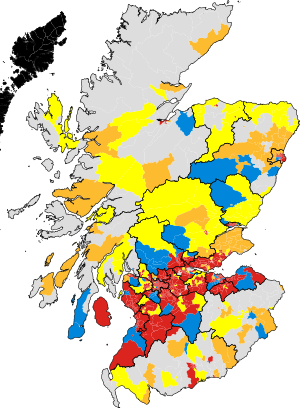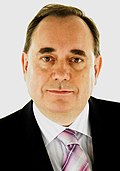This article needs additional citations for verification .(January 2013) |
| |||||||||||||||||||||||||||||||||||||||||||||||||||||
1,155 seats to 29 mainland Scottish councils | |||||||||||||||||||||||||||||||||||||||||||||||||||||
|---|---|---|---|---|---|---|---|---|---|---|---|---|---|---|---|---|---|---|---|---|---|---|---|---|---|---|---|---|---|---|---|---|---|---|---|---|---|---|---|---|---|---|---|---|---|---|---|---|---|---|---|---|---|
| |||||||||||||||||||||||||||||||||||||||||||||||||||||
 Colours denote the winning party with outright control | |||||||||||||||||||||||||||||||||||||||||||||||||||||
 Colours denote the largest party in council | |||||||||||||||||||||||||||||||||||||||||||||||||||||
 Colours denote the winning party in each ward | |||||||||||||||||||||||||||||||||||||||||||||||||||||
Local elections were held in Scotland on 6 April 1995, as part of the Local Government etc. (Scotland) Act 1994. The elections were held for the 29 new mainland unitary authorities created under the act, which replaced the nine former regions established in 1975. [1] The three island areas (Orkney, Shetland and the Western Isles) were retained from the previous system. These areas did not take part in the 1995 election, having held local elections on 5 May 1994.



